C urrent news: we have just moved our data entry facility to Talbot Campus reuniting the group on one site (DG10, ground floor) we have also updated our scanning equipment and software to make data processing faster and more accurate. Some good teamwork with IT services and Estates made the move possible, while handling a record amount of data for this time of year.
urrent news: we have just moved our data entry facility to Talbot Campus reuniting the group on one site (DG10, ground floor) we have also updated our scanning equipment and software to make data processing faster and more accurate. Some good teamwork with IT services and Estates made the move possible, while handling a record amount of data for this time of year.
Our ongoing projects include:
- Dorset County Council panel surveys, providing data for the ‘Big Society’ and various staff surveys
- RDO European Time Share research.
- Data processing for two Bangor University, healthcare research projects with Health and Social Care.
- Data processing for Kings College London, healthcare research with Health and Social Care.
- Renaissance South East – Research into museum and gallery visits by primary and secondary school children in the SE region.
- Data processing and analysis for North Staffordshire NHS, Maternity Patient Surveys a joint project with Health and Social Care.
- The National Trust Countryside visitor research – a survey of 60 countryside areas managed by the organisation.
- The National Trust visitor research – a survey of 180 properties in the United Kingdom, providing monthly market intelligence and feedback to properties and analysis to guide strategic decision making at a national level. The research includes and investigation of specific topics including, community engagement and drivers of visitor enjoyment.
- Countryside and leisure research, sponsored by the National Trust to investigate drivers of countryside visit behaviour and motivation.
- Hindhead Common, Surrey, impact of road new road route and tunnel.
- Wareham St Martin Community research project this will provide analysis feedback for the development of community projects.
- Research support for the Digital Hub HEIF 4 research managed by Philip Alford.
- Research support for the GIS HEIF4 research programme managed Mark Dover, Applied Sciences
- Research support for the Boscombe Surf Reef Project managed by ICTHR and Applied Sciences
The value of projects in the ‘order book’ at present is around £400,000 but of course this value is much enhanced by the value of case studies and research material to support the curriculum.
We also have a number of bids in progress including Bournemouth Arts Festival, the Pembrokeshire Tourism Survey and research for the Northern Constabulary.
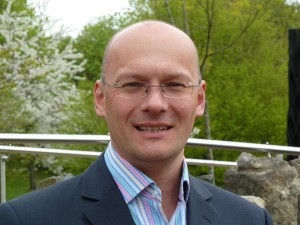
 It is too easy to remain in our offices and too complacent of us to accept that opportunities will simply appear be it to write a paper or be part of an application for a research grant. My advice is to escape the office on a regular basis, mingle with staff either in your own School or beyond, enjoy a chat over coffee or even register for that workshop, conference or event that you keep telling yourself you are too busy to attend. Getting out and about and communicating with your colleagues either at BU or further afield can lead to new friendships and hopefully a co-authored paper or two, a joint research seminar or if you are really lucky a grant application. One of my best “chance encounters” occurred on a work trip to Malaysia back in 2007 when I shared a taxi from the airport in Kuala Lumpur to the centre of the city with the former Director of Tourism for Antigua & Barbuda. In the space of 40 minutes we discussed the state of tourism in the Caribbean and sketched out a PhD proposal while at the same time agonising over which schools to send our respective children. To this day my “KL Taxi” acquaintance remains a good friend and in her new position in the Caribbean is no longer a “stranger” but someone who is a strong advocate of BU, an employer of our students, a conduit to professional international networks and …… a potential co-author and PhD candidate when the pressure of work subsides!
It is too easy to remain in our offices and too complacent of us to accept that opportunities will simply appear be it to write a paper or be part of an application for a research grant. My advice is to escape the office on a regular basis, mingle with staff either in your own School or beyond, enjoy a chat over coffee or even register for that workshop, conference or event that you keep telling yourself you are too busy to attend. Getting out and about and communicating with your colleagues either at BU or further afield can lead to new friendships and hopefully a co-authored paper or two, a joint research seminar or if you are really lucky a grant application. One of my best “chance encounters” occurred on a work trip to Malaysia back in 2007 when I shared a taxi from the airport in Kuala Lumpur to the centre of the city with the former Director of Tourism for Antigua & Barbuda. In the space of 40 minutes we discussed the state of tourism in the Caribbean and sketched out a PhD proposal while at the same time agonising over which schools to send our respective children. To this day my “KL Taxi” acquaintance remains a good friend and in her new position in the Caribbean is no longer a “stranger” but someone who is a strong advocate of BU, an employer of our students, a conduit to professional international networks and …… a potential co-author and PhD candidate when the pressure of work subsides! The very successful
The very successful 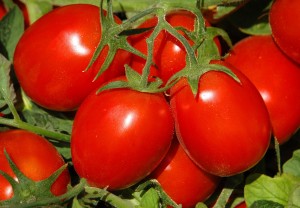

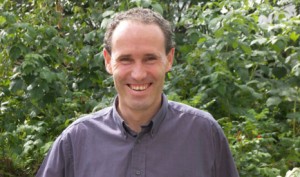 Richard received the award for having made a substantial impact in collaborative working within BU, and securing external funding to create an innovative research network involving internal colleagues and external institutions. The research undertaken by the network has led to high impact outputs.
Richard received the award for having made a substantial impact in collaborative working within BU, and securing external funding to create an innovative research network involving internal colleagues and external institutions. The research undertaken by the network has led to high impact outputs.

 Dr Janet Dickinson,
Dr Janet Dickinson,  6ST will provide a deep understanding of how the increasingly multiple forms of temporality and spatiality influence travel mode choices and the ways in which people and ‘things’ might be willing to share certain personal travel information. This will be achieved through the novel use of smart phone and tagging technology to provide data feeds on activity and availability, monitored through a Platform that will anticipate opportunities for connections that are then made visible to users in the social network. The contribution from Bournemouth University focuses on reducing car dependence at UK tourism destinations. A series of experiments at campsites will explore to what extent the tagging of vehicles linked to dynamic data repositories of tourists daily experiences, needs and desires can break down social barriers and facilitate more cooperation. This enhanced temporal and spatial visibility could lead to better use of public transport, lift sharing to and from attractions, and the co-ordinated movement of ‘things’ (in terms of provisions) required by the collective members of the campsite.
6ST will provide a deep understanding of how the increasingly multiple forms of temporality and spatiality influence travel mode choices and the ways in which people and ‘things’ might be willing to share certain personal travel information. This will be achieved through the novel use of smart phone and tagging technology to provide data feeds on activity and availability, monitored through a Platform that will anticipate opportunities for connections that are then made visible to users in the social network. The contribution from Bournemouth University focuses on reducing car dependence at UK tourism destinations. A series of experiments at campsites will explore to what extent the tagging of vehicles linked to dynamic data repositories of tourists daily experiences, needs and desires can break down social barriers and facilitate more cooperation. This enhanced temporal and spatial visibility could lead to better use of public transport, lift sharing to and from attractions, and the co-ordinated movement of ‘things’ (in terms of provisions) required by the collective members of the campsite. 6ST seeks to reduce energy consumption and emissions from the transport sector through an increase in adoption of sustainable travel modes and lower carbon travel choices.
6ST seeks to reduce energy consumption and emissions from the transport sector through an increase in adoption of sustainable travel modes and lower carbon travel choices.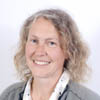
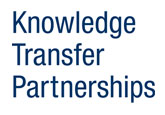

 Bournemouth University graduate Harriet McKay – who has since been appointed as the company’s Communications Manager – was brought in to deliver the marketing support. “When I started, the website was plain and there was absolutely no reason for customers to come back to the site,” Harriet explained. “I worked with the team at Dorset Cereals and their design agency to create a new website that would create more visits and importantly communicate their brand values. Before the University’s involvement the company had 16,000 emails on its database, now we have over 200,000. It’s been a fantastic success story.”
Bournemouth University graduate Harriet McKay – who has since been appointed as the company’s Communications Manager – was brought in to deliver the marketing support. “When I started, the website was plain and there was absolutely no reason for customers to come back to the site,” Harriet explained. “I worked with the team at Dorset Cereals and their design agency to create a new website that would create more visits and importantly communicate their brand values. Before the University’s involvement the company had 16,000 emails on its database, now we have over 200,000. It’s been a fantastic success story.”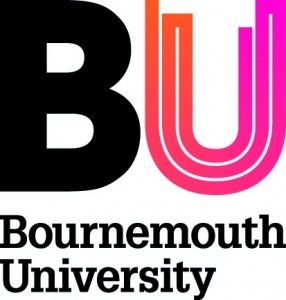











 From Sustainable Research to Sustainable Research Lives: Reflections from the SPROUT Network Event
From Sustainable Research to Sustainable Research Lives: Reflections from the SPROUT Network Event REF Code of Practice consultation is open!
REF Code of Practice consultation is open! BU Leads AI-Driven Work Package in EU Horizon SUSHEAS Project
BU Leads AI-Driven Work Package in EU Horizon SUSHEAS Project ECR Funding Open Call: Research Culture & Community Grant – Apply now
ECR Funding Open Call: Research Culture & Community Grant – Apply now ECR Funding Open Call: Research Culture & Community Grant – Application Deadline Friday 12 December
ECR Funding Open Call: Research Culture & Community Grant – Application Deadline Friday 12 December MSCA Postdoctoral Fellowships 2025 Call
MSCA Postdoctoral Fellowships 2025 Call ERC Advanced Grant 2025 Webinar
ERC Advanced Grant 2025 Webinar Update on UKRO services
Update on UKRO services European research project exploring use of ‘virtual twins’ to better manage metabolic associated fatty liver disease
European research project exploring use of ‘virtual twins’ to better manage metabolic associated fatty liver disease